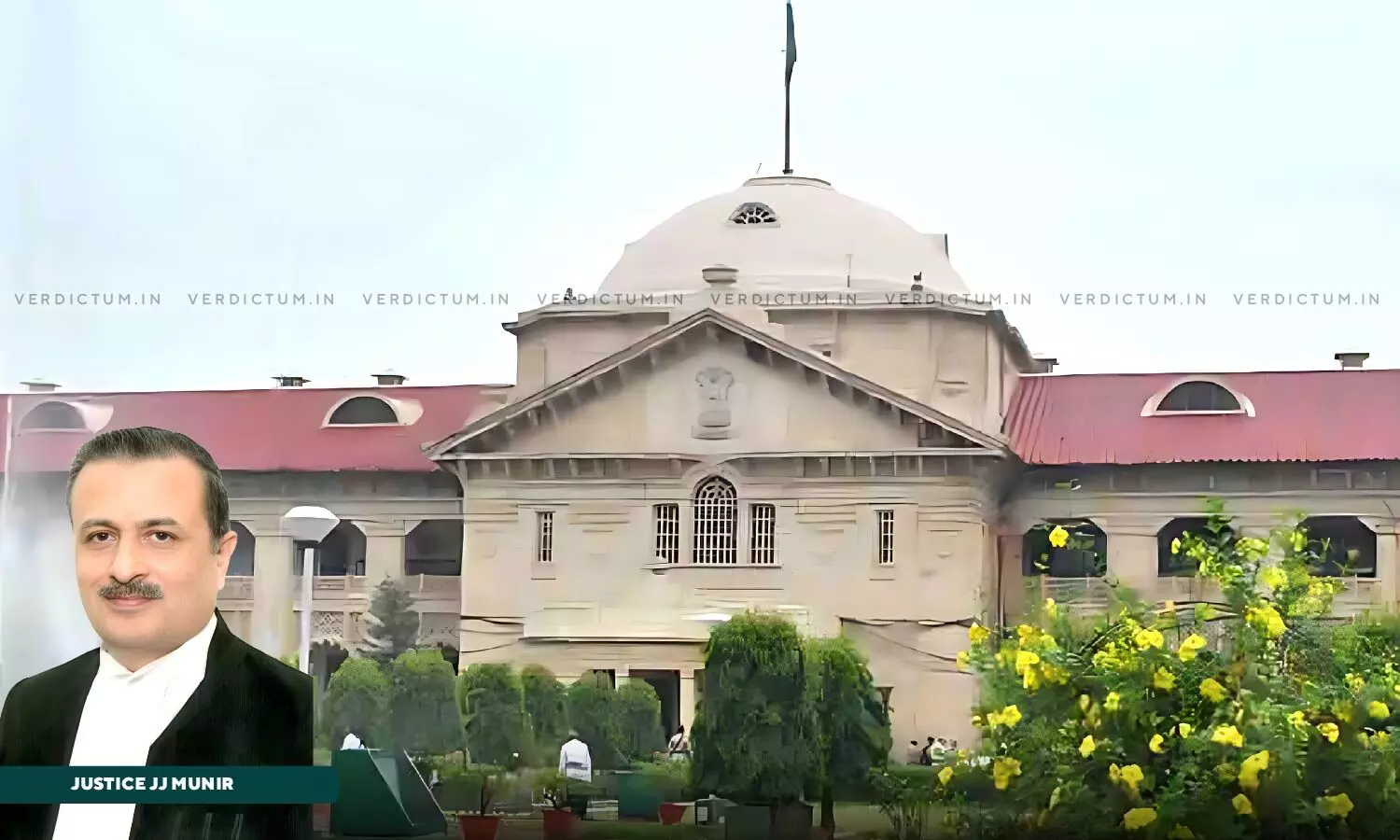
"There Is Abundant False Implication": Allahabad HC Directs Police To Reassess Constable Application Of Acquitted Man In '498A' Case
 |
|The Allahabad High Court has instructed the Uttar Pradesh Police to re-evaluate the case of a man who was denied a position as a Police Constable due to a pending case against him under Section 498A of the Indian Penal Code (IPC), which pertains to cruelty by a husband or his relatives.
Despite being acquitted in this case, the police had dismissed his application, citing that his acquittal was due to the prosecution witnesses turning hostile.
A Bench of Justice JJ Munir said, “This is particularly true, this Court must make it bold to say, when an offence punishable under Section 498-A IPC and the accompanying charges under Section 3/4 of the Dowry Prohibition Act are in issue. While the evil may be rife in society, it is equally true that there is abundant false implication. This is particularly so about the relatives of the husband, not so directly connected, with the sovoured matrimonial bond between the spouses.”
Advocate Raghavendra Sharan Tiwari appeared for the petitioner, while Additional Chief Standing Counsel Girijesh Kumar Tripathi appeared for the respondents.
The Court highlighted that not every criminal charge should lead to an automatic disqualification from public service. It added, “A mechanical approach, which reads like a mathematical equation, always leading to disqualification from public employment for a person, against whom a criminal case is registered - whatever be the charge - even if he is acquitted - has to be eschewed.”
The Court noted that he was related to the complainant in the 498A case, and criticized the authorities for applying a rigid interpretation of the acquittal, concluding that the mere fact that witnesses had turned hostile should not automatically disqualify him. The Court added, “The degree of moral turpitude attaching to the crime given the prevailing circumstances in society, must also be borne in mind. Also, it cannot be discounted if the offence is one that has become commonplace in society by easy false implications. Of course, this Court does not wish to say that any generalization be made out of these propositions.”
The Court pointed out that the case did not involve severe criminal conduct but stemmed from marital issues. He stated that if there were indeed demands for dowry or mistreatment, the evidence did not implicate him directly. The Court said, “The District Magistrate and the Deputy Commissioner of Police, as the Certifying and the Appointing Authority, have applied a thumb rule to the judgment of acquittal to conclude against the petitioner on the ground alone that the witnesses had turned hostile. This is not a case involving a heinous offence, where the accused - a possible desperado or a hardened criminal - might have suborned witnesses or won them over. The crime itself is a fall out of matrimonial maladjustment between the spouses. The corpus delicti in this case would not show any case or evidence of violence."
Furthermore, the Court stressed that the concept of police officers as a disciplined force should not require candidates to be untouched by life's challenges or societal issues. As a result, the Court nullified the decision that rejected his application and mandated the police to reconsider the matter.
The Court ordered the Deputy Commissioner of Police to issue new directives within three weeks of receiving the judgment, considering the guidance provided in the ruling.
Cause Title: Siddharth Singh v. State of U.P. & Ors., [2024:AHC:160343]